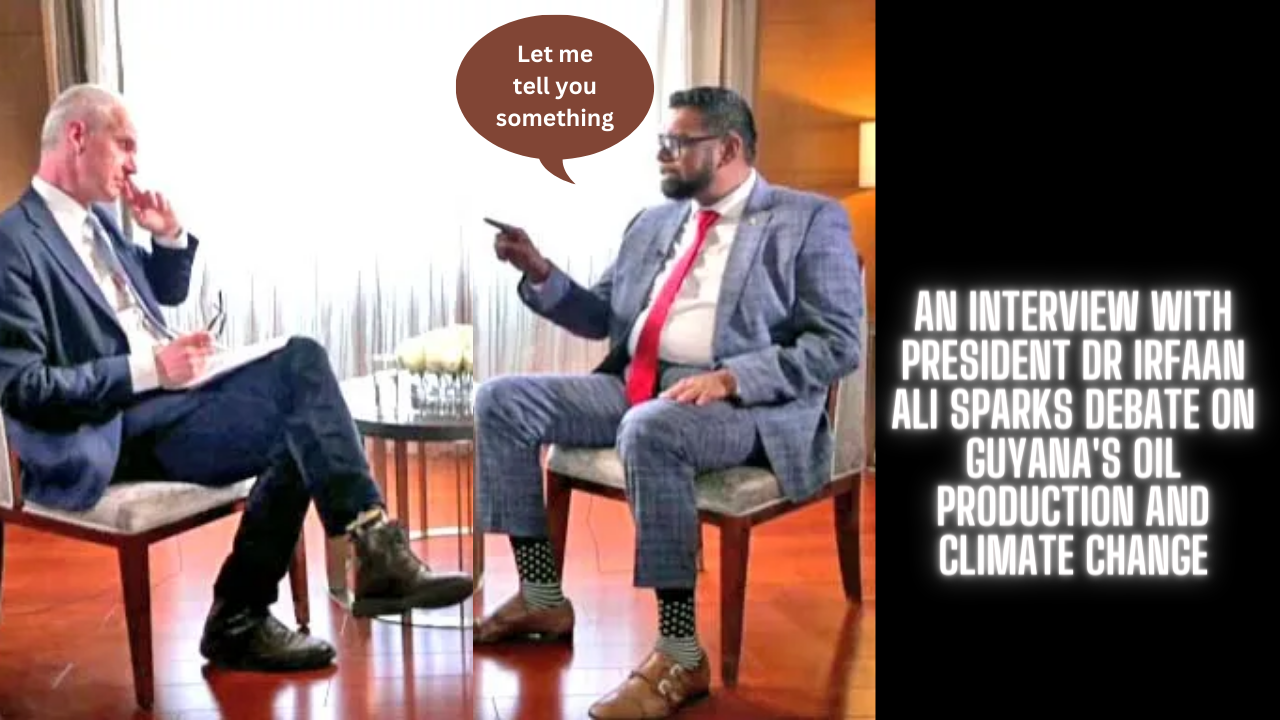An Interview with President Dr Irfaan Ali Sparks Debate on Guyana’s Oil Production and Climate Change
An Interview with President Dr Irfaan Ali Sparks Debate on Guyana’s Oil Production and Climate Change
Table of Contents
In a recent interview with Stephen Sackur, the host of BBC’s “HardTalk” show, Guyana’s Head of State, President Dr. Irfaan Ali, found himself defending the country’s oil and gas production amidst questions about its environmental impact and contribution to global warming.

Sackur began the interview by highlighting projections that Guyana’s expected production of US$150 billion worth of oil over the next decade could result in more than two billion tonnes of carbon emissions. He questioned President Ali about Guyana’s role in combating climate change, referencing commitments made by countries at the United Nations Framework Convention on Climate Change (UNFCCC).
President Ali responded assertively, drawing attention to Guyana’s vast forest cover, equivalent in size to England and Scotland combined, which stores 19.5 gigatonnes of carbon. He emphasized the country’s stewardship of this forest and challenged the interviewer’s authority to lecture Guyana on climate change given its preservation efforts.
Asserting Guyana’s commitment to sustainable practices, President Ali noted the country’s low deforestation rate and highlighted its status as a net-zero emitter, even with peak exploration for oil. He acknowledged the necessity of oil production for addressing developmental needs but underscored Guyana’s practical approach to balancing economic growth with environmental preservation.
Guyana has received recognition for its forest management efforts, evidenced by the issuance of 33.4 million tons of Architecture for REDD+ Transactions (ART)-certified carbon credits. Additionally, the country entered a US$750 million deal with Hess Corporation for the sale of carbon credits, with a portion of proceeds allocated to Indigenous communities for development.
President Ali called out developed countries for failing to fulfill pledges to assist developing nations in combating climate change, emphasizing Guyana’s commitment to a clean energy transition. However, he cautioned that achieving net-zero emissions by 2050 would require substantial financing and a multifaceted approach, including reducing fossil fuel production, promoting renewables, and addressing deforestation and land degradation.
The interview shed light on Guyana’s complex relationship with oil production, economic development, and environmental sustainability, sparking debate on the global stage about the intersection of energy policy and climate action.
Also read 167 Families in Amelias Ward Phase Four Linden Receive Ownership Documents

Pingback: Two Men Charged with Stealing 7 Million Dollar Safe from Dalip Trading Enterprise - News Updates
Pingback: Police Investigate Armed Robbery at Hong Yuang Supermarket - News Updates